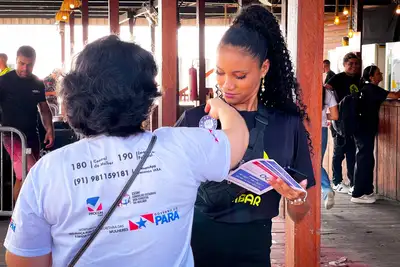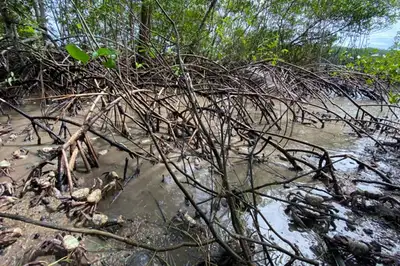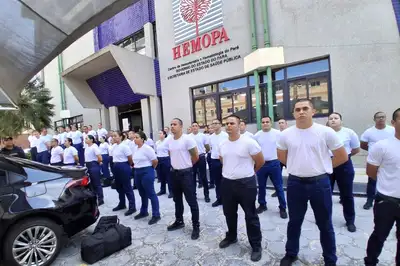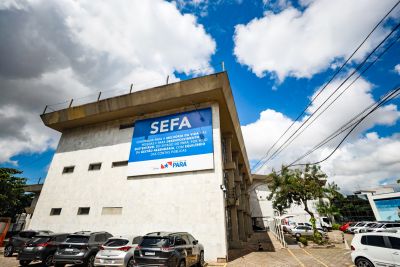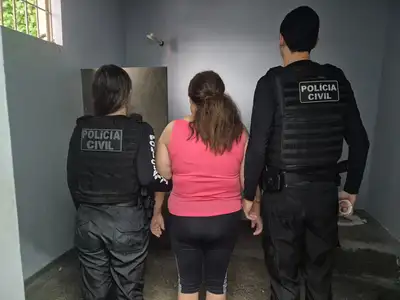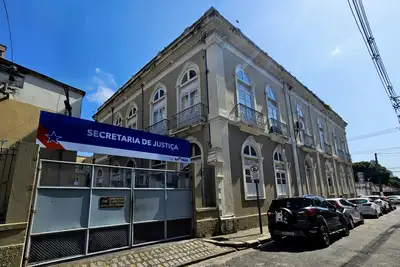State school students and residents of Ananindeua transform abandoned land into a community garden
The Environmental Education project, a mandatory curricular component in Pará, is developed at the Nair Rodrigues de Caldas Brito Zaluth State School
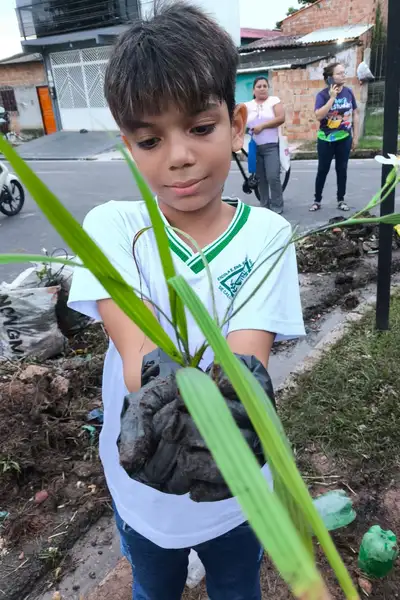
With an emphasis on sustainable actions and environmental awareness that go beyond the classroom, students from the Nair Rodrigues de Caldas Brito Zaluth State Elementary School, in the 40 Horas neighborhood of Ananindeua, a municipality in the Metropolitan Region of Belém (RMB), built a community garden on an abandoned lot near the school. The initiative is part of the project "From Literature to Action: Pará in the fight against climate change," developed within the Environmental Education curricular component, and involved students from the 1st to the 5th grade of Elementary School.
“Through the project, I have witnessed the power of education in building environmental and sustainable awareness. Each activity developed, each discussion fostered, and each action implemented are small steps towards a more balanced and responsible future. Being an Environmental Education teacher at the Nair Rodrigues de Caldas Brito Zahluth School has been a journey of learning, commitment, and transformation,” assures the project's teacher and advisor, Lucélia Cruz.
According to her, the work is based on the Sustainable Development Goals (SDGs) of the United Nations (UN), allowing environmental education to go beyond discourse, becoming a commitment to concrete practices.
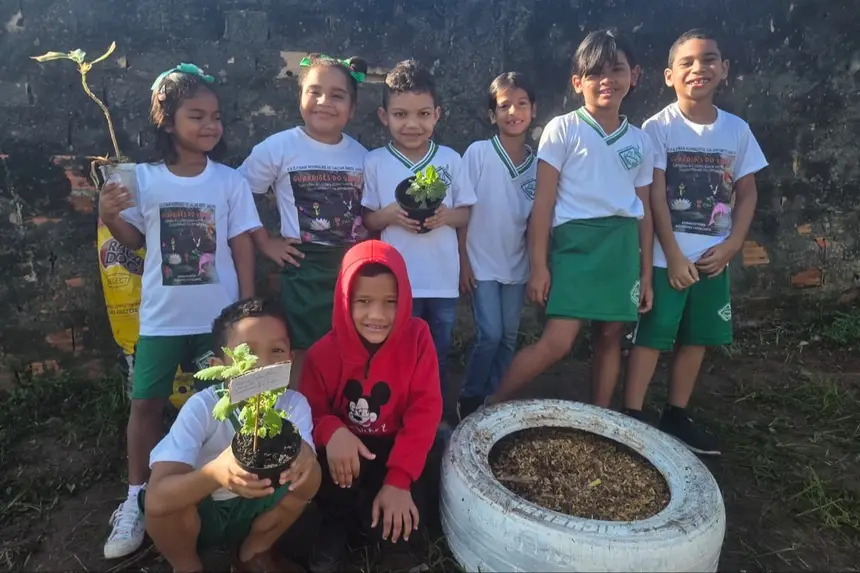
“Our school territory is situated in a context of great social and environmental vulnerability, where challenges such as improper waste disposal, degradation of public spaces, and resource scarcity directly impact the quality of life of the community. In this scenario, education becomes a tool for empowerment, enabling students to see themselves as agents of change, promoting initiatives such as community gardens, recycling campaigns, and actions to preserve the natural spaces around the school,” highlights Lucélia Cruz.
For 5th-grade student Leonardo Souza, the project brought valuable lessons. “The project was really cool, and I learned for my life that it is important to do these actions that improve the school, the community, and all of this through education to preserve the environment. I learned to care for nature and preservation, not to burn things, not to mistreat animals, to throw trash in the bin, and things like that,” informs the student.
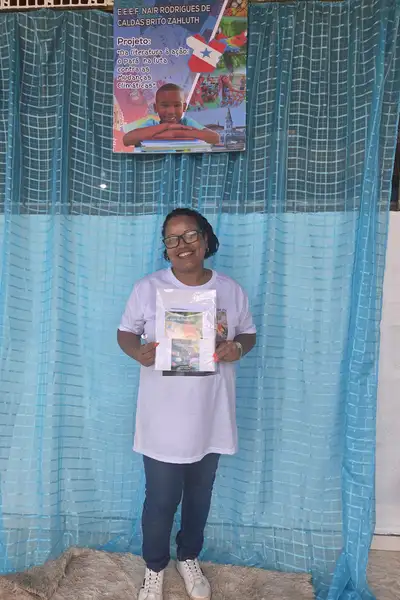
Amazônia Tales - In addition to the culmination of the project, this week the school community participated in the launch of a collection of Amazonian tales adapted to the theme of the environment and sustainability, authored by teacher Rosenvile Cavalcante, the school's vice-principal. The work seeks to reinforce students' learning about environmental preservation.
According to the educator, the collection of Amazonian tales is already being used in classes.
“The project started in December when the students went on vacation. The other writer, Dora Alice Pérez Araújo, and I were creating the stories, making corrections, and working on the illustrations. It was very good because, when classes started, each class had a story to be developed in class with reading and practice, along with the construction of the garden next to the school,” explains Rosenvile Cavalcante.
As a teacher of the Environmental Education curricular component, she emphasizes the fundamental role of these actions and their impacts on the future of students and the community. “Seeing the sparkle in the students' eyes when they realize that their actions make a difference is the greatest reward. They not only learn about the environment; they become protagonists in the fight for a fairer and more sustainable world. I believe that through education, we can transform realities and build a future where environmental balance and social justice walk hand in hand. And this struggle begins here, in the classrooms, in heated debates, in collective actions, and in the daily commitment of each student. May we continue to sow hope and cultivate real changes for Pará and the world,” says Lucélia Cruz.
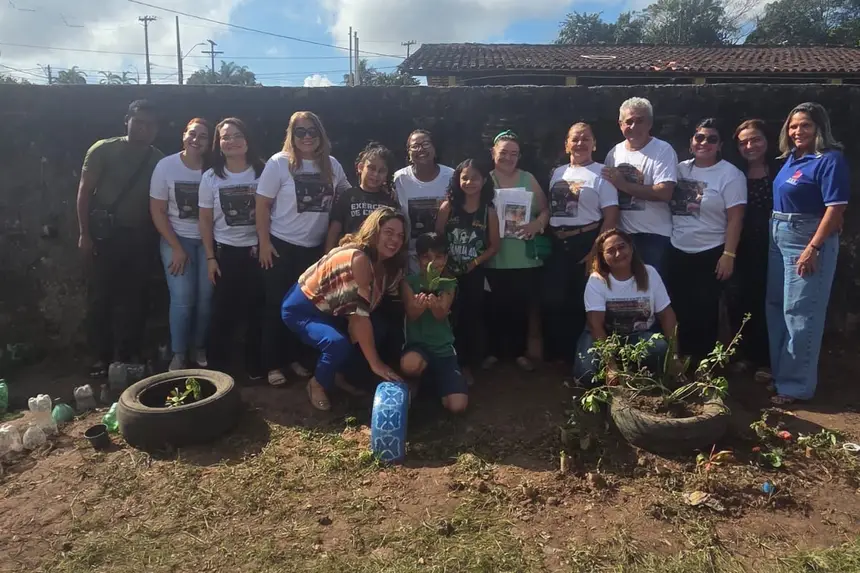
Environmental Education - The State Department of Education (Seduc) has been offering the Environmental Education component in all stages of education, as a mandatory subject, in state schools since the first semester of 2024. This component can be adopted by municipalities, based on the Environmental Education, Sustainability, and Climate Policy.
Seduc highlights that the environmental content makes Pará a pioneer in guaranteeing a mandatory sustainability curricular component, encouraging the participation and engagement of students in discussions about fundamental agendas for Pará, whose capital, Belém, will host the United Nations Conference on Climate Change (COP 30) in November 2025.


